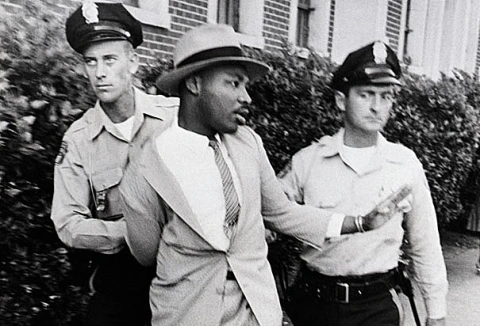Disgusted Young People: How Martin Luther King Predicted the Decline of the Mainline Church
"So often the contemporary church is a weak, ineffectual voice with an uncertain sound. So often it is an archdefender of the status quo. Far from being disturbed by the presence of the church, the power structure of the average community is consoled by the church’s silent—and often even vocal—sanction of things as they are.
"But the judgment of God is upon the church as never before. If today’s church does not recapture the sacrificial spirit of the early church, it will lose its authenticity, forfeit the loyalty of millions, and be dismissed as an irrelevant social club with no meaning for the twentieth century. Every day I meet young people whose disappointment with the church has turned into outright disgust."
Martin Luther King, Jr., Letter from a Birmingham Jail
There’s been a series on NPR this past week about young adults leaving their religion behind. The thrust of the weeklong series centered on the increasing number among the emerging generations who no longer claim any religious affiliation.
Some gave traumatic grief as a reason for giving up, and others named a ponderous ecclesiastical hierarchy they no longer found useful, while still others struggled with what felt like the silliness of trying to find consolation in mythology. I get the impression from listening to them that they’ve thought more about religion than many of the people I know who’ve remainedin the church. They’ve carved their disbelief out of the cold existential marble of a future scape devoid of religious infrastructure.
Interestingly, though, some of what I heard sounded like wistfulness, a desire somehow to have the “something” they felt like religion offers. “Not consolation, necessarily” they say. “Not so much forgiveness,” they’re quick to add. For some it sounded like a desire for community. For another I heard it as a longing for the kind of taken-for-grantedness associated with a meaningful afterlife, which some religion offers.

